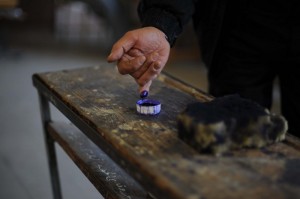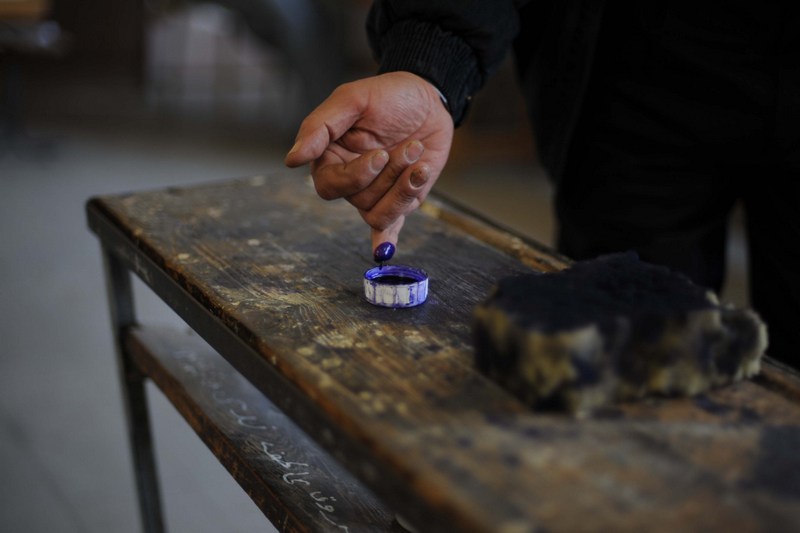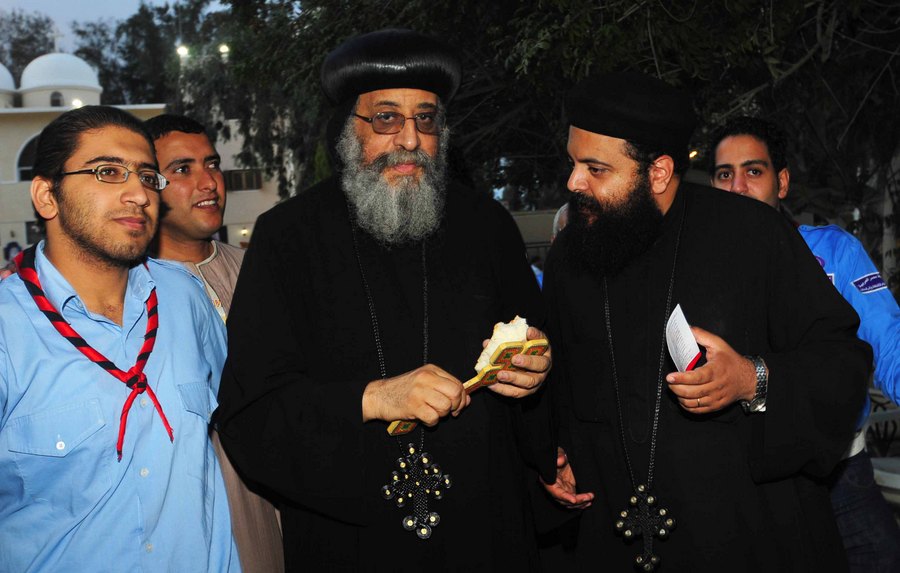
(AFP Photo)
The Egyptian Centre for Public Opinion Research (Baseera) said a recent poll revealed that 79% of Egyptians intend to vote in March’s parliamentary elections scheduled to start in March.
The centre’s figures put this as an average of four out of every five citizens looking to vote.
The poll was conducted between 13 and 15 January. Baseera said the poll was conducted on a sample of 2,020 people across Egypt, with a response rate of 53% and an error margin of 3%.
Accordingly, 79% of the 1,070 who responded said they intended to participate in elections, a total of 845 people. Egypt has a population of over 87 million according to last August figures by the Central Agency for Public Mobilization and Statistics (CAPMAS).
The Supreme Electoral Commission is yet to announce the final numbers of eligible voters for parliamentary elections. In the presidential elections of May 2014, over 53 million voters were registered, with the commission reporting a participation rate close to 50%.
While 10% of interviewees said they have not made a decision yet, Baseera estimated participation of 75% in urban areas and 82% in rural areas.
In the method of data collection, Baseera said interviews were conducted via mobile and landline, which could be potentially misleading for determining the exact location of the person being asked. Moreover, the economic status of people was speculated according to questions related to interviewees’ purchasing power of basic goods.
The survey started with a yes or no question on electoral participation, followed by whether or not people approved of political parties with an Islamic background, and choosing between civil and religious parties.
According to the results, 35% of the answers approved the presence of Islamist parties in comparison to 47% who did not, and 18% neutral. Furthermore, 55% said they will be inclined towards civil and liberal political parties in comparison to 13% for the Islamic current, while 8% provided “other answers”.
According to Yousry Al-Azabawy, a political researcher at Al-Ahram Centre for Political and Strategic Studies (ACPSS), the report lacks accuracy.
“After the revolution, most polls focused on voters did not represent reality for various reasons, such as voters changing their minds on participation in elections,” Al-Azabawy explained in statements to Daily News Egypt Wednesday.
Al-Azabawy added that the sample was not representative and that the questions were biased. “Up to this moment there are numerous factions inside the Islamist political movement and different political parties so categorising them into one group is incorrect,” Al-Azabawy stated.
He explained that elections require more research and commented on Baseera’s survey questions by saying they were “limited in number and in choice”.




